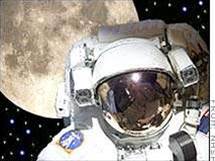
Researchers will focus on new verification and validation techniques that will enable systems such as collision avoidance software, which enforces a minimum separation distance between satellites.
According to research team leader Declan Bates, such autonomous rendezvous control systems will require reliable analysis tools for the verification and validation of complex system behaviour.
“In this new project, we will develop and test control system analysis techniques to improve the reliability and efficiency of this verification and validation process,” said Bates, who is a senior lecturer in the University of Leicester’s Department of Engineering.
“Future ESA missions, like the autonomous robotic satellites which will collect and return samples from the surface of Mars, require control systems involving complex requirements, system architectures, software algorithms and hardware implementations.”
“It is essential to show that the control system is sufficiently robust to ensure the desired safety levels under a large number of adverse and unforeseen conditions,” he said.
The project is said to be the third major research contract awarded by the ESA to the Leicester Control and Instrumentation Research Group.
Other members of the consortium include: the Spanish advanced technology company GMV; the Canadian company NGC Aerospace; and the University of Oxford.


.png&h=140&w=231&c=1&s=0)

_(28).jpg&h=140&w=231&c=1&s=0)






 iTnews Benchmark Awards 2026
iTnews Benchmark Awards 2026
 iTnews Executive Retreat - Security Leaders Edition
iTnews Executive Retreat - Security Leaders Edition
 iTnews Cloud Covered Breakfast Summit
iTnews Cloud Covered Breakfast Summit
 The 2026 iAwards
The 2026 iAwards












_(1).jpg&h=140&w=231&c=1&s=0)



